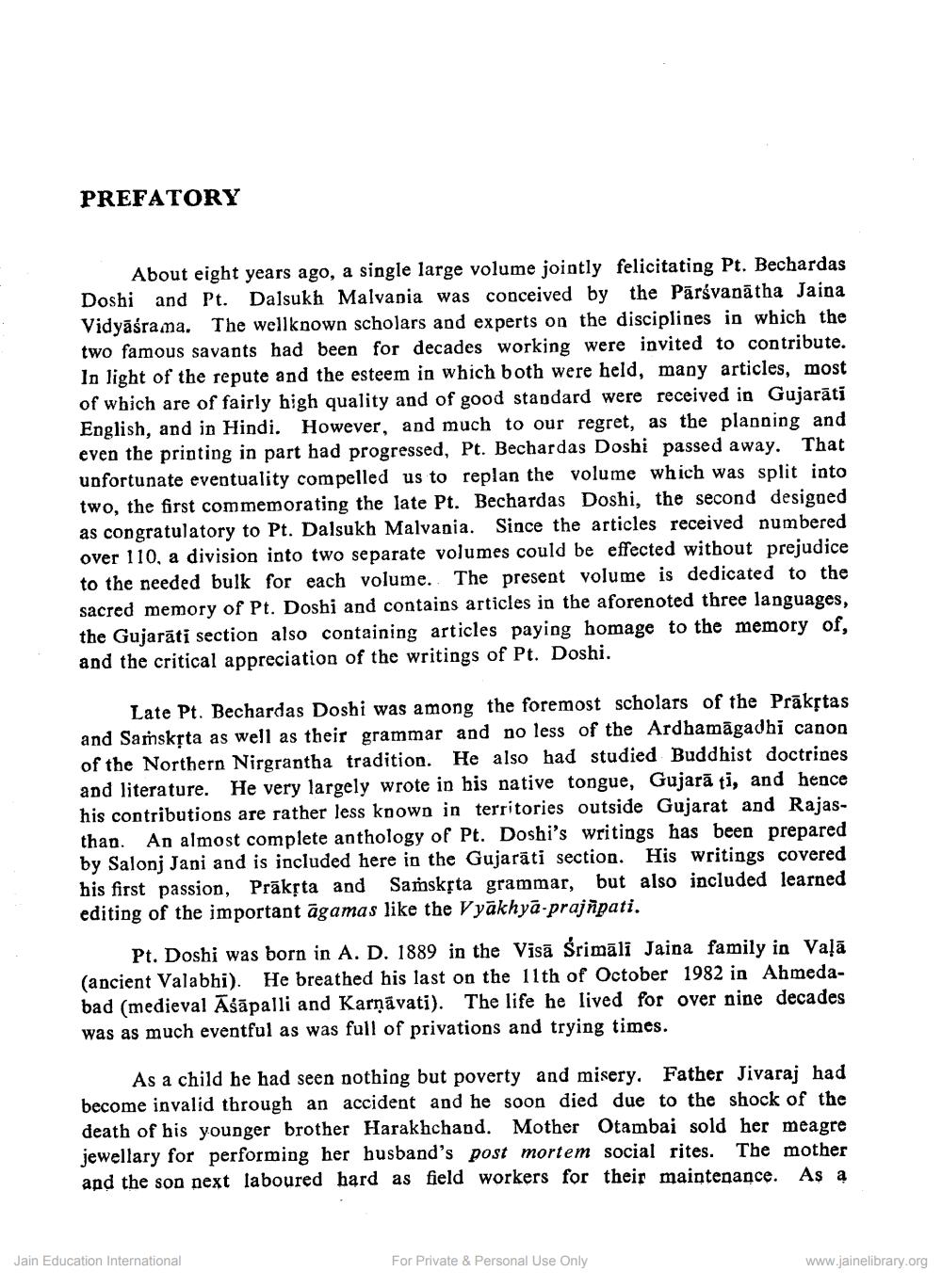________________
PREFATORY
About eight years ago, a single large volume jointly felicitating Pt. Bechardas Doshi and Pt. Dalsukh Malvapia was conceived by the Pārsvanātha Jaina Vidyāśrama. The wellknown scholars and experts on the disciplines in which the two famous savants had been for decades working were invited to contribute. In light of the repute and the esteem in which both were held, many articles, most of which are of fairly high quality and of good standard were received in Gujarāti English, and in Hindi. However, and much to our regret, as the planning and even the printing in part had progressed, Pt. Bechardas Doshi passed away. That unfortunate eventuality compelled us to replan the volume which was split into two, the first commemorating the late Pt. Bechardas Doshi, the second designed as congratulatory to Pt. Dalsukh Malvania. Since the articles received numbered over 110, a division into two separate volumes could be effected without prejudice to the needed bulk for each volume. The present volume is dedicated to the sacred memory of Pt. Doshi and contains articles in the aforenoted three languages, the Gujarāti section also containing articles paying homage to the memory of, and the critical appreciation of the writings of Pt. Doshi.
Late Pt. Bechardas Doshi was among the foremost scholars of the Prākstas and Samsksta as well as their grammar and no less of the Ardhamāgadhi canon of the Northern Nirgrantha tradition. He also had studied Buddhist doctrines and literature. He very largely wrote in his native tongue, Gujarā ti, and hence his contributions are rather less known in territories outside Gujarat and Rajasthan. An almost complete anthology of Pt. Doshi's writings has been prepared by Salonj Jani and is included here in the Gujarāti section. His writings covered his first passion, Prāksta and Samsksta grammar, but also included learned editing of the important āgamas like the V yakhya-prajñpati.
Pt. Doshi was born in A. D. 1889 in the Visā Śrimāli Jaina family in Vaļā (ancient Valabhi). He breathed his last on the 11th of October 1982 in Ahmedabad (medieval Āsāpalli and Karṇāvati). The life he lived for over nine decades was as much eventful as was full of privations and trying times.
As a child he had seen nothing but poverty and misery, Father Jivaraj had become invalid through an accident and he soon died due to the shock of the death of his younger brother Harakhchand. Mother Otambai sold her meagre jewellary for performing her husband's post mortem social rites. The mother and the son next laboured hard as field workers for their maintenance. As a
Jain Education International
For Private & Personal Use Only
www.jainelibrary.org




